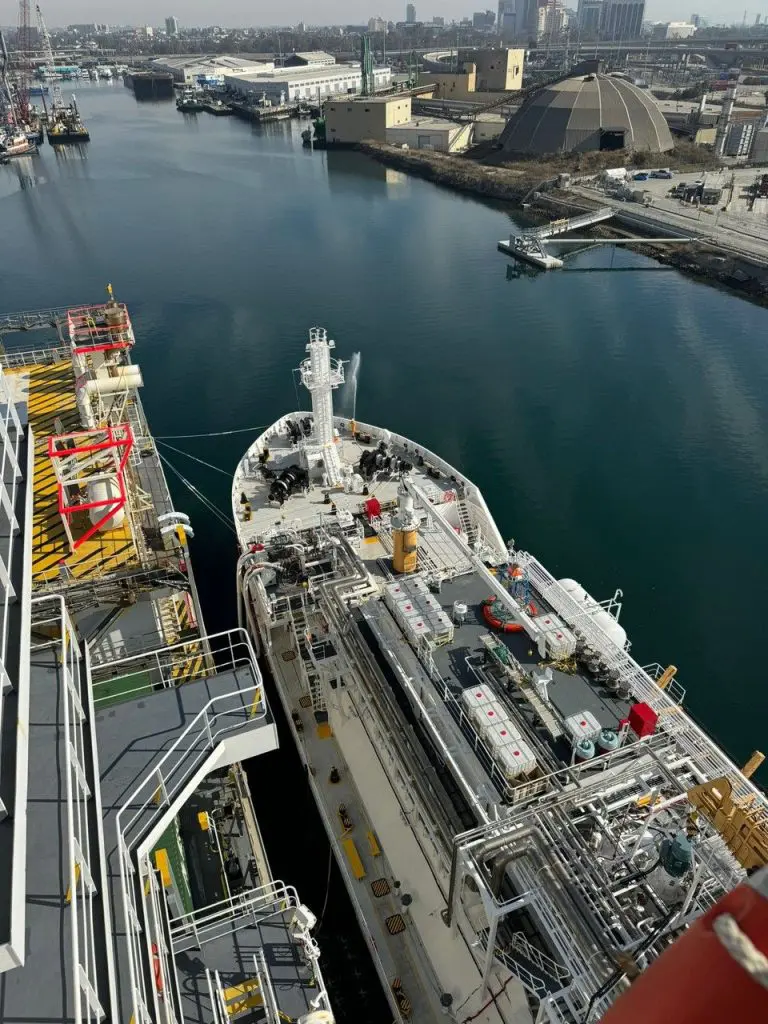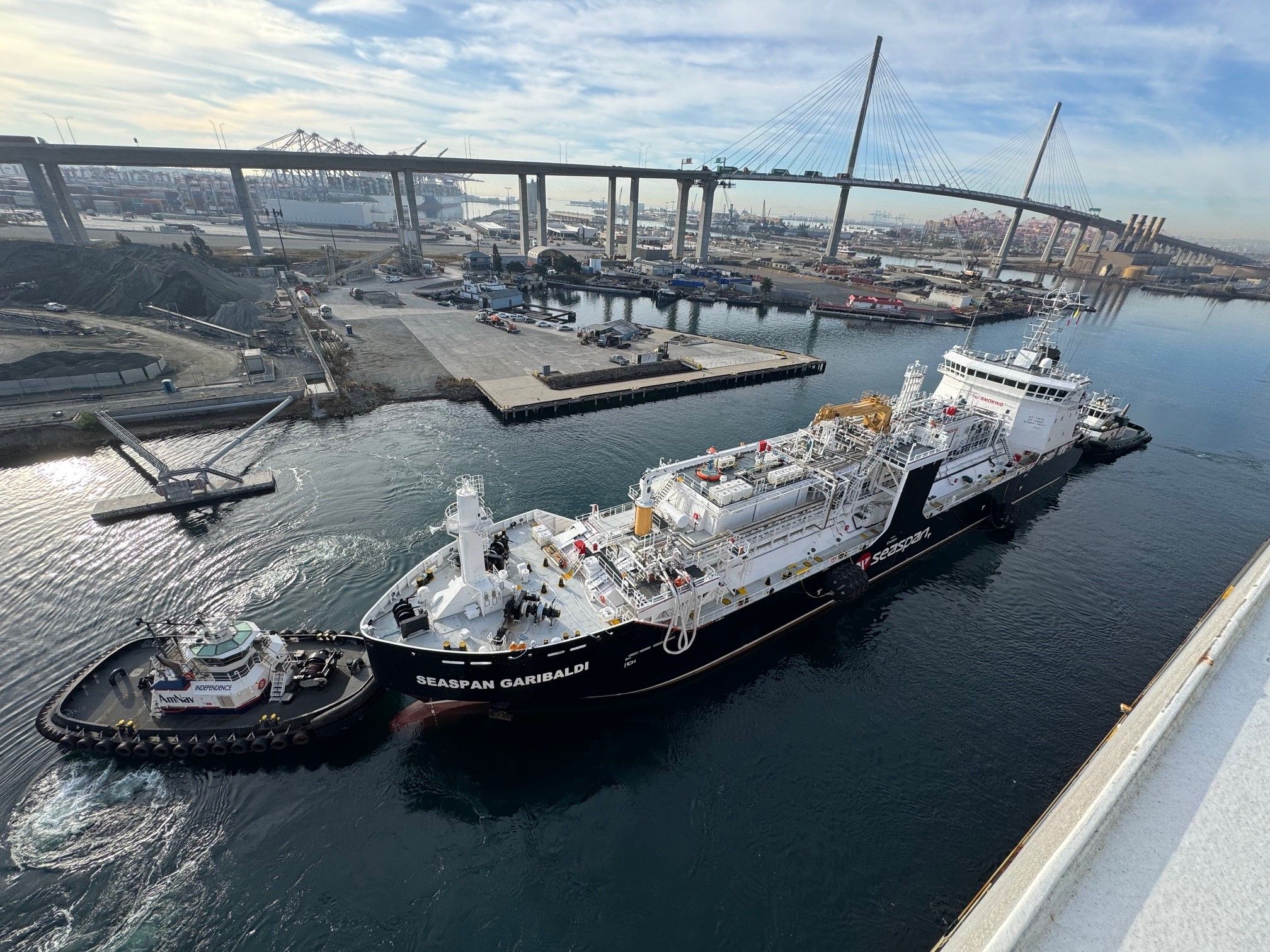This story requires a subscription
This includes a single user license.
Seaspan Energy said on Wednesday this operation marks the beginning of its service offering on the West Coast of North America with two LNG bunkering vessels to soon serve both the Long Beach and Vancouver markets.
The firm completed the first ship-to-ship transfer with the 7,500-cbm Seaspan Garibaldi, the first of three Seaspan Energy 112-meter-long LNG bunkering vessels.
Seaspan Energy did not reveal the name of the containership.
The company said that Seaspan Garibaldi will soon be joined by its sister vessel, Seaspan Lions, and both bunkering vessels will support the market on the West Coast of North America.
China’s Nantong CIMC Sinopacific Offshore & Engineering recently handed over Seaspan Lions to Seaspan Energy.
Like its sister vessel, Seaspan Garibaldi, which CIMC SOE delivered in August, the newbuild is 112.8 meters long, 18.6 meters wide, 5 meters deep, and has a design speed of 13 knots.
In addition, CIMC SOE floated out Seaspan Energy’s third vessel, Seaspan Baker, in July.

First Canadian firm to provide STS LNG bunkering
Seaspan Energy says it is the first Canadian company to provide ship-to-ship LNG bunkering solutions.
Also, the firm recently became the first accredited LNG bunkering supplier in the port of Vancouver.
This accreditation authorizes Seaspan Energy to conduct ship-to-ship LNG bunkering for LNG-fueled vessels calling at the port of Vancouver.
Seaspan is a group of Canadian companies primarily involved in coastal marine, transportation, bunker fueling, ship repair, and shipbuilding services on the West Coast of North America. Seaspan Energy is part of this group.
“Our first ship-to-ship LNG bunkering has been five years in the making and our team is so proud of this milestone especially as this represents the first ship-to-ship bunkering on the West Coast of North America,” said Harly Penner, Saeaspan Energy’s senior vice president.
“We are committed to offering large vessel operators a low-carbon fuel solution and this is the first of many successful operations to support a sustainable shift in the global marine sector,” Penner said.

